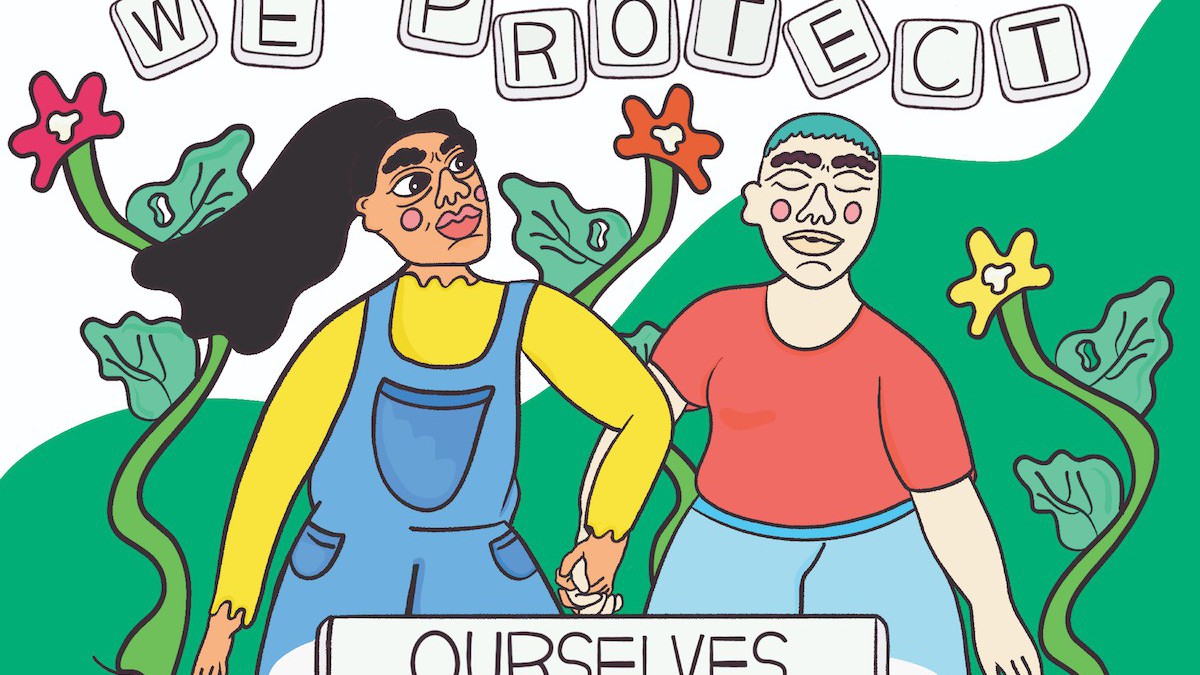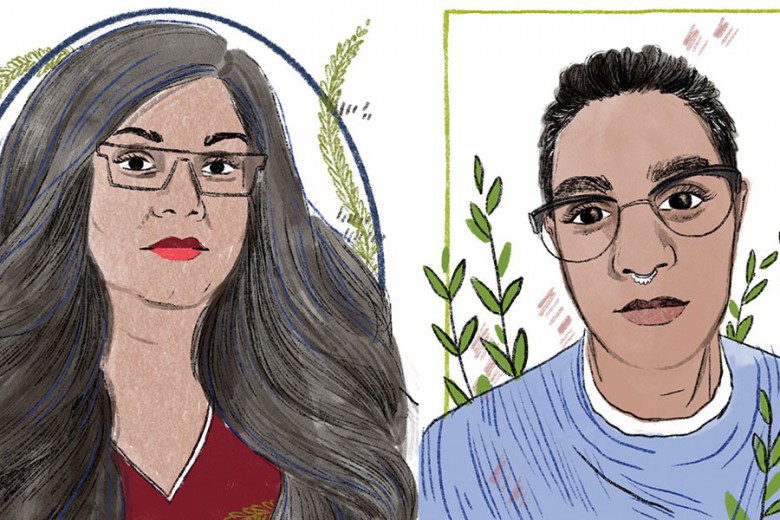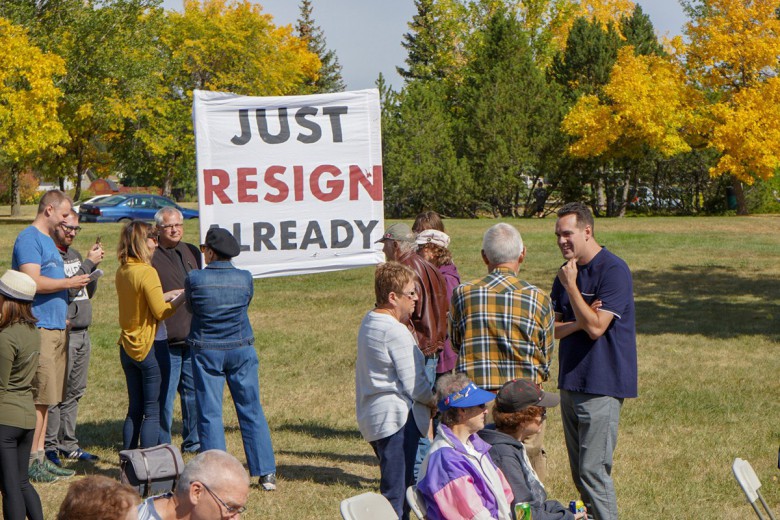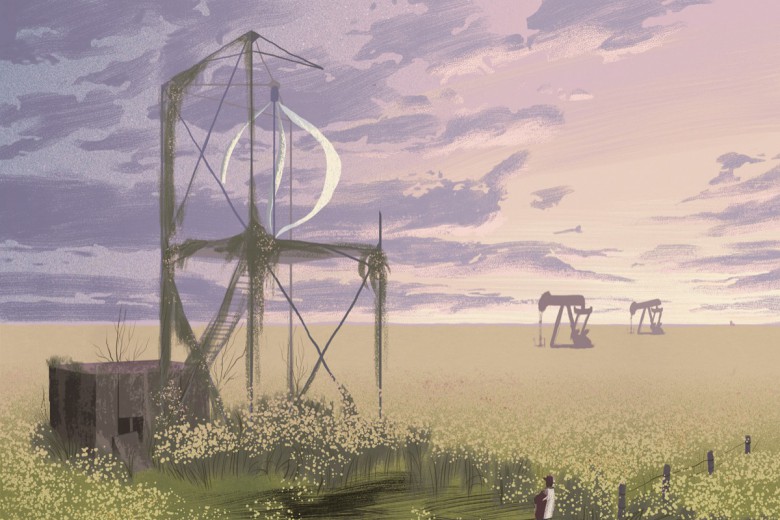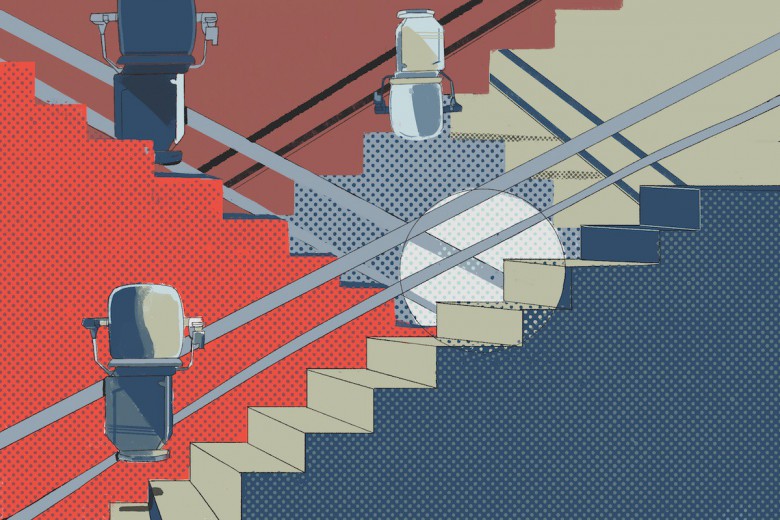“Everyone walked away scot-free,” says Samantha Bird.
It’s October 2021 and we’re talking about her experiences with Street Culture Project, where just over a year ago, Sam and other former SCP employees came forward with complaints of sexual harassment, bullying, and a toxic workplace. “There was never any repercussions to their actions,” Sam continues. “The executive director got to resign, the CEO got to retire, and one of the directors just got to go back to work. Where did that leave us? Rehashing our trauma.”
Street Culture Project is a non-profit that works with some of Regina’s most structurally vulnerable youth, providing services that include an emergency shelter, employment programs, and mentorship. Sam has a long history with Street Culture: over 10 years ago, when she was a 15-year-old experiencing homelessness, she was introduced to the organization by her social worker. Later, in 2010, she would become a staff member there. While at Street Culture, she says she was sexually harassed by her supervisor, repeatedly called incompetent and a “bitch,” all the while being manipulated by the organization’s leadership into believing she owed them a debt of gratitude.
“I was a ‘success story,’ as Kim [Sutherland, SCP’s former CEO] would say,” Sam recalls. “But I lost out on 10 years of my life. I was so impressionable, I was homeless, I was relying on people to keep me safe. I was relying on them.”
In July 2020, an anonymous Instagram account emerged with the handle “Victims Voices Regina’’ (VVR) (also known as “Survivor’s Stories Regina”). The account creators encouraged survivors to submit their own stories of sexual harassment and violence, and within weeks of the account’s inception, it had posted hundreds of stories of people being sexually harassed and assaulted in Regina – some of which publicly named their perpetrators.
“But I lost out on 10 years of my life. I was so impressionable, I was homeless, I was relying on people to keep me safe. I was relying on them.”
It kicked off a reckoning with sexual violence unlike any that Regina had seen in recent history. While VVR exposed the sexual violence that is pervasive in many environments in Saskatchewan – from tattoo parlours to restaurants to the music industry – this article is dedicated to the ways in which sexual violence and abuse has run rampant in Regina’s non-profit sector, with a specific focus on Street Culture Project (SCP) and the John Howard Society of Saskatchewan (JHSS).
We – Jen and Rowan – both have our own relationships with non-profits on the Prairies. Rowan is a white settler scholar-activist and a survivor of intimate partner and sexual violence. Though she didn’t work in a non-profit in Regina, she was in an abusive relationship with someone who did and had to leave the Prairies because of it. Jen is a nêhiyaw-Saulteaux Métis queer/Two-Spirit scholar-activist born and raised in Treaty 4 territory (Regina) and a survivor of intimate partner violence. She worked for SCP in early 2014 and, during that time, routinely experienced and witnessed physical and sexual violence – seeing youth and staff sexually harassed, threatened, and intimidated.
As two survivors who are sick of the BS, and who have spent years struggling unsuccessfully through the systems that promised us justice and accountability, we watched the events of 2020 unfold with rage and dread. We also took note of the way those accused, and the organizations they work for, responded to the accusations in inappropriate and inadequate ways – ultimately failing the structurally vulnerable people whom they claim to support and further entrenching a culture that allowed the abuses in the first place.
Allegations and response
Amid the allegations of sexual violence sweeping across Regina in July 2020, one anonymous post was shared on the Victims Voices page detailing the near-daily sexual harassment and abuse at a “local youth organization” that serves marginalized youth. The post described the perpetrator as a “serial sexual harasser,” a “trusted figure in the lives of young people,” and a “powerful influence over those who work for him.” And while it never named the perpetrator, the comments on the post revealed the accused was Street Culture Project’s executive director, Dustin Browne. He later identified himself on the post, issuing what he called an “apology.” Soon after, he resigned.
The comment section exploded with further claims of a toxic workplace. Allegations of abuse were made against SCP’s CEO, Kim Sutherland; its director of operations, Mike Gerrand; and its shelter manager, Burnie Hall. Shortly after, Sutherland announced his retirement and Gerrand and Hall were ordered to work remotely pending an internal investigation launched by SCP in early August 2020. Hall later left the organization – it’s unclear whether he quit or was fired.
By mid-August 2020, 16 Street Culture Project employees – past and present – had come forward with stories of a workplace riddled with nepotism, degrading insults, abuses of power, and sexual harassment by members of SCP management. In a CTV News story, Erin Fogarty, a former Street Culture employee, described Browne’s behaviour toward staff, saying that it included “crawling under their desk and touching their leg or grooming people for jobs that existed exclusively in his private office. And then, when they turned it down, because they turned down his sexual advances, entirely stifling their careers. That’s what happened, consistently.”
“Their goal was to protect those in power, not to make reparations to survivors. That was never the goal. Their goal was men protecting men,” Sam says of SCP.
The John Howard Society of Saskatchewan also came under fire after an anonymous post on the Victims Voices page accused an unnamed employee of intimate partner violence and of having a potentially inappropriate relationship with a young person accessing JHSS’s services. The John Howard Society is a national non-profit that aims to provide support and advocacy for people caught up in the court and prison systems as well as those likely to be criminalized. In Saskatchewan they run youth shelters, drop-in programs, and arrange volunteer work placements.
“He made me feel small, worthless and unlovable,” the post read. “He threatened to kill himself if I ever left him. He sexually assaulted me several times when we were together. He would hit me or choke me and the next day tell me it never happened.” In response, a JHSS staff member was placed on administrative leave, and JHSS released a statement committing to an external investigation.
Over the last five years, Rowan has connected with community members in Regina and B.C. who spoke of a pattern of abuse and predatory behaviour by the JHSS employee referred to in the post, but none of them agreed to be named or quoted in this article, out of fear of reprisal. Advocates have reached out to John Howard Society’s B.C., Saskatchewan, and national boards, and to at least two CEOs, raising concerns about the employee and his ability to work safely with clients. Until the public callout on Instagram, JHSS had not taken any steps to address the concerns.
Though JHSS and SCP often failed to do even that – remove the perpetrators of harm from the situation in which they had power to cause harm – their inadequate responses have meant the larger culture of sexual violence that pervades non-profit workplaces has gone unchecked.
Both SCP and JHSS responded to the Victims Voices posts with third-party investigations. The investigations were marred by a deliberately narrow scope and a lack of transparency; the “apologies” they have issued have been vague, brief, and insufficient. After the investigation, JHSS retained the staff member who was accused of intimate partner violence. Mike Gerrand, the director of operations who was accused of verbal sexual harassment and inappropriate behaviour at work, continues to work at SCP.
“Their goal was to protect those in power, not to make reparations to survivors. That was never the goal. Their goal was men protecting men,” Sam says of SCP. What message does this send to the people accessing services from these organizations, especially those who are vulnerable to abuse?
As with all sexual violence, interpersonal incidents hint at much larger systemic issues. Thinking of this as a problem caused by a few bad men deceives us into believing that removing the individuals will solve the problem. Though JHSS and SCP often failed to do even that – remove the perpetrators of harm from the situation in which they had power to cause harm – their inadequate responses have meant the larger culture of sexual violence that pervades non-profit workplaces has gone unchecked.
Colonial care and the non-profit sector
It feels impossible to talk about non-profits on the Prairies – many of which are disproportionately accessed by Indigenous people – without talking about settler colonialism.
The history of the Prairies is the history of colonial “care” of Indigenous people. This includes the residential school system, where Indigenous children were kidnapped and forced into institutions designed to assimilate, abuse, and kill them; the ’60s Scoop, when Indigenous children were again taken from their communities and placed with (or sold to) white foster families; and the prison system, in which Indigenous people are criminalized and locked up at a proportion many times higher than their representation in Prairie populations. Today in Saskatchewan, 86 per cent of children in the foster care system are Indigenous, and 75 per cent of adults in provincial jails are Indigenous. Each of these acts of genocide – shrouded as “education,” “civilization,” and “rehabilitation” – were and are designed to remove Indigenous people from their land, allowing Canada access to resources in Indigenous territories.
In essence, Canada’s strategy toward Indigenous Peoples is: “We’re not going to take good care of you, but we’re not going to let you take good care of yourselves, either.” Impoverished and traumatized by colonial laws and violence, Indigenous people were forced into reliance on the colonial social welfare system, among whose earliest iterations were Christian missionaries running residential schools and Indian agents dispensing meagre aid to starving Indigenous Nations. As George Manuel and Michael Posluns write in their book The Fourth World, “what really made the [Indian] agent more powerful than the chiefs was that he was now empowered to dispense welfare to anyone who could not make a living while their neck was within this noose woven by foreign laws.”
“They saw me as nothing,” Sam says. “Now I know I’m fighting colonialism just by existing.”
Sam, who is Saulteaux from Cote First Nation, recalls, “I was 15 years old, and they took 10 years away from my life. They took that from a young, homeless, Indigenous girl.” She adds that at SCP, she felt like she was “groomed and used as a mascot for credibility and funding.”
“They didn’t think I should take pride in my Indigenous identity,” Sam continues. “I didn’t like the way I was Native because [of] the way they talked about Native people and framed Native people. They made fun of and weaponized my Indigenous identity. I didn’t get to feel proud of myself because I was surrounded by white males. This is me taking my power back from the white man who took away my Indigenous pride.”
Corporal punishment and sexual violence were central to the workings of residential schools, and Indian agents similarly relied on coercion and manufactured poverty. Knowing that Christian missionaries and Indian agents directly shaped the modern “helping professions,” we begin to understand the deep historic roots of abuse in Prairie non-profits.
“They saw me as nothing,” Sam says. “Now I know I’m fighting colonialism just by existing.”
Dead ends
Though the allegations against Street Culture Project finally burst into visibility in 2020, staff members say they had been complaining to (and about) leadership for years but that their complaints weren’t taken seriously. Then, when journalists asked if the leadership and board of directors were aware of earlier complaints, Street Culture dodged their questions.
Notably, within SCP, the board, staff, and human resources department was saturated with nepotism. The human resources director was widely known to be in a romantic relationship with the executive director at the time of the public allegations. The CEO was also in a romantic relationship with the executive director’s father, who also served as a board member. It became a web of unchecked power – this is in part because there was little transparency around how board members were selected, how staff were hired, and how funds were distributed.
The government ministries that fund JHSS and SCP have deliberately kept their hands clean, but we know that they can get involved in investigations if they so choose.
Today, these non-profits receive copious government funding, yet they tend to escape the state’s usual forms of punishment and responsibility. In 2021, JHSS received more than $5 million in government grants, most of which came from the Ministry of Social Services and the Ministry of Corrections, Policing and Public Safety. In 2021, SCP reported $3.3 million coming from government grants. When journalists asked the Ministry of Corrections about whether it would do anything to address the complaints against SCP, an organization it funds, the ministry demurred, saying it would simply wait for the results of the investigation.
The government ministries that fund JHSS and SCP have deliberately kept their hands clean, but we know that they can get involved in investigations if they so choose. When the Raising Hope Moving Families Forward housing program, run by Regina’s Street Workers Advocacy Project, faced allegations in December 2020 of “harassment, intimidation and bullying of residents and staff,” SWAP first responded with its own review of the program. But after residents and staff raised further complaints of “conflict of interest, bias, and deception,” the Ministry of Social Services stepped in to conduct its own independent review of Raising Hope. The ministries of Social Services and Corrections have failed the people who rely on the non-profits they fund. But at the end of the day, we also know that governments are riddled with the same hierarchical power structures and colonial priorities as non-profits. Sam puts it simply: “The government doesn’t care.”
We both participated in the investigations that were launched after the public allegations – Rowan in JHSS’s and Jen in SCP’s. Those investigations were voluntary, opt-in, and – in the end – not useful for survivors.
For Rowan, the public reckoning with the JHSS staff member’s harm had painful reverberations:
As someone who personally experienced harm, violence, and abuse from a staff member at JHSS, I participated in a workplace investigation from September to December 2020. I was terrified to participate as I was afraid of retaliation by my ex. But by then I’d already tried community accountability; connecting with other survivors; liaising with community members, who then approached the JHSS CEO with concerns on my behalf; and even filing an eventual police report – all to no avail. I looked into getting a restraining order, but my new address would have been disclosed to my abuser, and I would have had to pay to renew it annually. I even reported to police the illegal firearm that my former partner had – the police took my report, said they would do a knock and talk to take the gun, and let me know how it went. But they never followed up with me, and I do not know if they ever spoke to him.
The JHSS workplace investigation I went through was brutal; it was re-traumatizing, exhausting, and left me debilitatingly anxious. After multiple difficult sessions with the third-party investigator, sending over screenshots, photos, and deeply personal documentation of abuses, JHSS refused to share any of the recommendations or outcomes from the investigation with me. A person who wanted to speak to the investigator about a pattern of abuse by presenting testimonies from other people who had experienced harm at my abuser’s hands was excluded from the investigation process, deemed to be “out of scope.” The implication was that if violence happened outside of work time, it did not matter.
In December 2020, near the end of the investigation, my advocate, a sexual violence policy expert, emailed the JHSS board of directors, asking to see the policies they referenced, asking to connect with their human resources department to give them feedback on how to better run a trauma-informed investigation, and asking for a follow-up meeting so I could request the board implement safety measures (such as a retaliation clause or suggested counselling for my abuser) to protect me. To this day, the board has not responded to those requests.
Even with support from an advocate who is familiar with these kinds of cases, my experience was disempowering, dehumanizing, infuriating, and beyond any repair of trust. My former abuser still works there, managing a shelter for vulnerable young queer people. The sheer hypocrisy of the situation – a known abuser in a position of power over young people fleeing violence – disgusts me at the deepest level. I have nightmares of watching terrible things happen, and screaming for help, trying to stop them, and people just staring at me. That’s how this feels.
Few things reinforce the sense of powerlessness caused by abuse more than speaking out about it and being treated like a problem. Rather than address the problem of harm, it is easier and more convenient to blame and disregard survivors than to put the responsibility where it belongs: on the abusers and the systems and cultures that allow this behaviour to go unchecked.
The story was similar at SCP: survivors exhausting all their other options before a public callout was met with a cloudy and confusing investigation. Sarah Mercer-Brewster, a former SCP employee who worked there when allegations were posted on Victims Voices, spoke of running into dead ends at SCP: “We asked for a meeting with the board and other directors; we called Regina Police Service and they never returned our phone calls; sent letters to Social Services; had meetings with local elected officials; and even reached out to the Governor General’s office in regard to the Governor General’s award that Kim [Sutherland, then-CEO] was given, which was never retracted. Every single direction led to a complete roadblock.”
Street Culture Project’s third-party investigation lasted nearly six months. During that time, management refused to comment on the allegations or offer an apology, saying they couldn’t say anything until the investigation was complete. When Sutherland retired and Hall left, the board thanked them for their service. At the end of November, 22 current and former staff wrote an open letter to the board and management, saying little had been done to make amends. They also raised concerns over a lack of transparency in the hiring of the interim CEO, Scott Cruickshank, and in the selection of SCP’s new board members and integrated management team. And perhaps most egregiously, Gerrand was allowed to resume his position before the investigation was even complete. According to a CBC article, Gerrand was deemed “low-risk” after a “full evaluation of his risk” was conducted by senior management.
In Jen’s experience, the investigation itself was riddled with confusing limitations:
Around October 2020, I submitted a letter through the investigator’s online form, requesting a phone call to discuss my experiences (this was a stated option for complainants). As I wrote in my letter, my complaint was about someone who had recently left SCP, as well as the larger culture of the organization.
The form itself asked for complainants to name the person they were accusing, asked them to describe the specifics of the incident, and asked “how did you respond?” Reading the questions, I remember feeling incredulous, especially at the question “how did you respond?” – this line of questioning puts the responsibility for resisting abuse on survivors, some of whom were children or were staff who had been experiencing abuse from their bosses for years. It’s hard to imagine the questions were written by someone familiar with trauma-informed practices.
The investigation was meant to end in November 2020, but I was not contacted until December 4. The investigator, Donna Sigmeth, sent me an email in which she wrote, “I have conducted an investigation focused on allegations against those respondents (those who allegations were made against) who were still employed at SCP. I have not yet had confirmation that those respondents who are no longer employed at SCP will participate in an investigation.” By this point, Sutherland had retired, Browne had quit, and Hall had left – the only person who had been publicly accused of misconduct who still worked at SCP was Gerrand. Then, on January 10, 2021, Sigmeth emailed me to confirm that Browne and Sutherland would not be participating in the investigation. In the same email, she told me that the SCP board had asked her to provide an anonymized summary of the complaints against Browne and Sutherland.
Meanwhile, none of this information about the shifting scope of the investigation was publicly disclosed by SCP or available on the investigator’s online form. It was unclear if the investigation and its report would include complaints against SCP employees who had not already been named in public allegations on Victims Voices and in the media, unclear if it would include complaints about the overall toxic and abusive work culture. Though Sigmeth did end up talking to me about my complaint, I still don’t know what that conversation was used for, what its point was. Street Culture put out a press release in February 2021 saying simply that “the investigator interviewed all the willing complainants and respondents.”
When the investigation finally concluded in January 2021, the SCP board confirmed it would not be releasing the full report publicly, citing confidentiality – but it did provide the report to the police. The board chair put out a paltry three-sentence apology in a press release: “SCP’s Board of Directors acknowledges there were issues within the organization in the past, including inappropriate actions, behaviours and practices. We apologize for the harms these issues caused. We are committed to resolving these issues and moving forward to better serve young people in our community.” The SCP webpage on which the report’s summary and 14 recommendations were posted (www.streetcultureproject.ca/update) has since disappeared, as has the online form (www.scpcomplaintsprocess.com) where the investigator accepted complaint submissions and outlined the process.
The SCP board says it’s already implemented some of the report’s 14 recommendations, but little about the organization’s culture appears to have changed. Since January 2021, a group of five former SCP staff, including myself, have continued the fight for accountability: asking SCP for full transparency in hiring and board selection practices and in changes to policy, and for a public apology that explicitly names and denounces sexual violence. On June 23, 2021, our advocacy group sent a proposed agenda to the SCP board that outlined our demands and requested to meet with the board. Seven weeks later, instead of meeting with us, the board provided a written response stating that “all agenda items have been addressed in the media” and that if we had a “specific question pertaining to the work SCP has undertaken in the past year or progress being made that is unrelated to specific past and current employees, the Board may be open to meet. In the future, the Board will not entertain requests for meetings to discuss current or past employee details.”
We then reached out to SCP’s new CEO, Jeff Dudar, requesting a meeting with him but were told that he would not communicate with us until the Regina Police Service’s review of the investigation was complete. After the police review ended, Dudar did meet with three members of the advocacy group and committed to bringing our concerns to the board.
But in November, a member of the advocacy group asked an SCP employee about the organization’s annual report and how much money is allocated to various programs (this info is not listed on SCP’s website). Dudar caught wind of the inquiry and emailed back that it was “very inappropriate” and that “the process that we had established has been critically undermined.” He continued on, writing that “I will not be having any additional conversations from this date forward [with you] regarding anything related to the investigator’s report and/or current staff/agency activities” and added that he would not be responding to the group’s requests for transparency and an apology.
We as survivors have tried everything available to us to hold our abusers accountable, to make sure the abuse doesn’t happen to others. No matter what we do and no matter how hard we try, it feels like we keep arriving at a dead end. Tell your boss? He’s involved or may even be the person hurting you. Tell him to stop? He might fire you. Ask to speak to HR? They might be in a relationship with your boss’s boss. Tell someone outside of the organization? They might not believe you or have any power to support your claim. Call the cops? They won’t even call you back! Besides, many of us distrust the police, having already experienced abuse at their hands – and the “solutions” they offer typically involve surveilling or imprisoning people in our communities, feeding into an existing cycle of trauma and abuse.
All roads lead to nowhere. As Sam tells us, if she’d spoken out earlier, “it would have been me against them.”
Seeking justice
Imagine witnessing and experiencing these kinds of behaviours by white men who are given power and protected by organizations with a historical record of harm; trying to resist from within; finally risking it all to name what happened publicly; and then being ignored, belittled, gaslit, and further injured by public gestures of support for your abusers. This is the experience of dozens of brave survivors who spoke up about the intimate harm they suffered. They deserve better. We deserve better.
When survivors are barred from accessing even the meagre redress afforded by capitalist and colonial laws and governments, we must make our own justice. This looks like banding together to offer each other space for healing, deep listening and care, a commitment-to-community accountability that prioritizes safety and consent, and a collective belief that our experiences of violence matter – despite what the world tells us. And it sometimes looks like the Victims Voices Regina Instagram page: anonymous public callouts on social media. But in a world where privacy law upholds abusers’ rights and abusers frequently sue survivors for defamation, naming perpetrators of violence in this way is a brave and dangerous act. The creators of Victims Voices learned this at the end of August 2020, when a man who was accused of rape on their page launched a $1 million lawsuit against Facebook and Jane Doe, Sally Doe, and John Doe, the unknown creators believed to be responsible for the page.
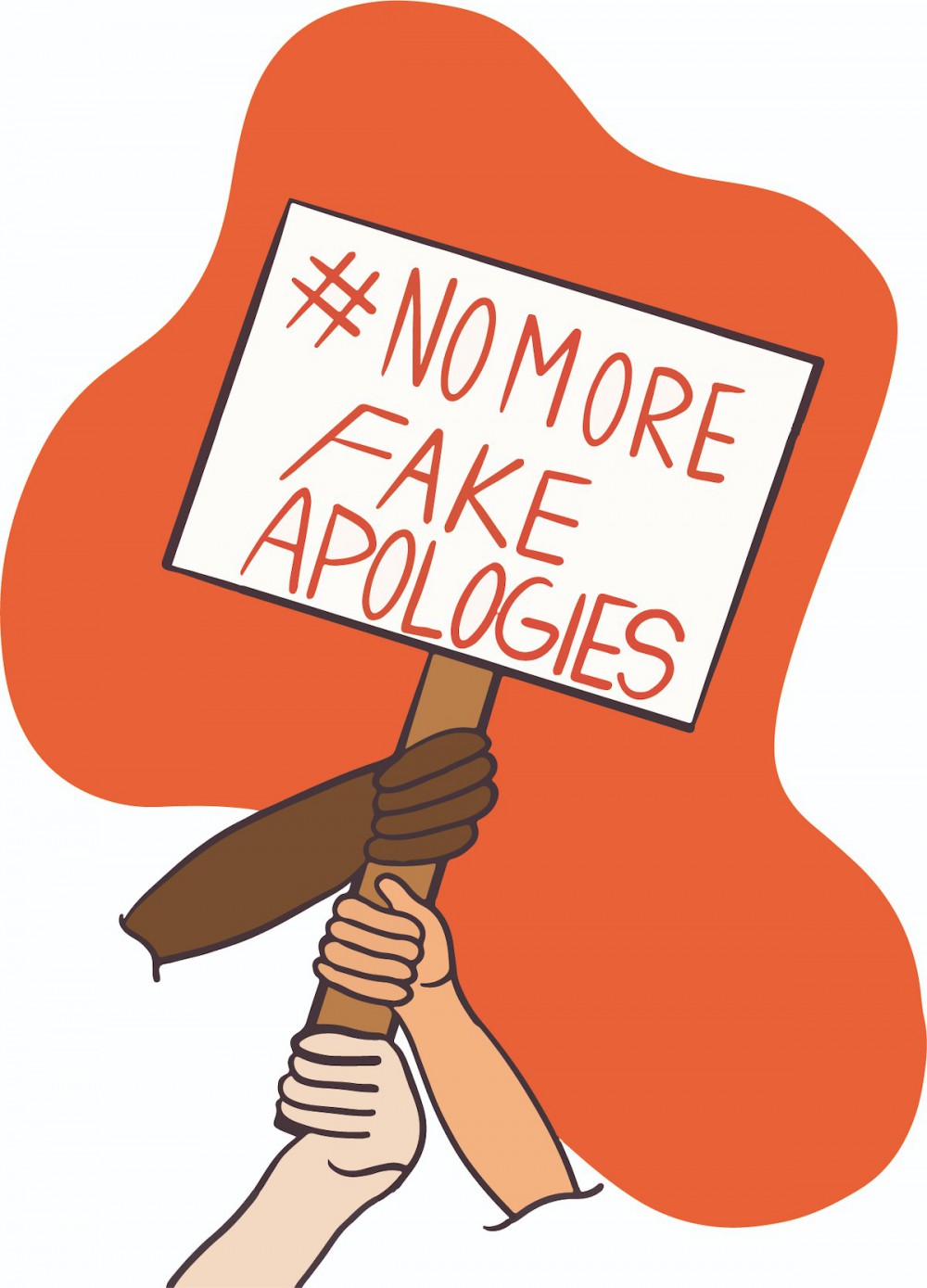
After so many dead ends, fake “apologies,” and ongoing harm, we wonder what real justice is. “For many survivors, they just want it to be over, but it’s unclear what that would even look like,” says Sarah.
For Sarah, an apology would mean “naming and denouncing the specific behaviours of specific people, redacting the thank you [letter] to Kim for his retirement” – and doing all of this publicly. “I would have liked to see proper language used,” Sam says. “Call it what it is: sexual harassment and sexual violence. They work in a place for people who experience sexual violence, they really failed on that one.” Sam also wants youth, survivors, and non-profit service users to be a part of envisioning justice in these types of situations, rather than what she calls the status quo of “white men making all the decisions.”
We don’t know yet what justice would feel like. We are still working on just surviving. We imagine it would be like the opposite of feeling crushed by the pain of the things we have felt in our bodies. Maybe it would feel light – like weight being put down instead of continually being added. Maybe it would feel like warmth. Maybe it would feel like relief. Or rest. Maybe justice is gentle. Maybe it would feel like the opposite of shame. We do know one thing, though: justice would feel like the responsibility of what happened finally being put where it belongs – and that would feel like freedom.
Update, January 27, 2022: This article stated that the VVR page creator was sued for $1 million, when in fact the lawsuit was filed against Facebook and Jane Doe, Sally Doe, and John Doe. This article has been updated to correct the error.


